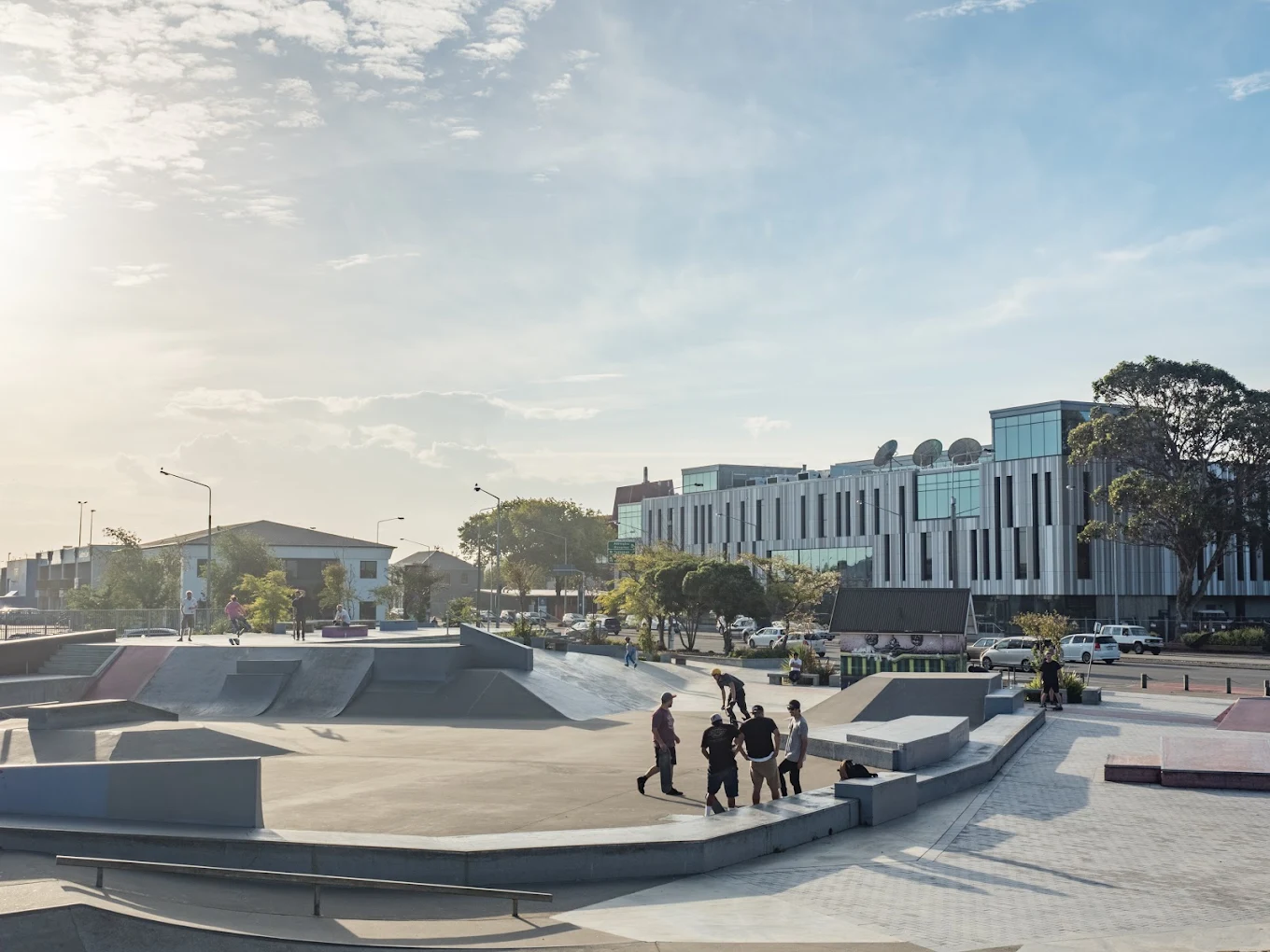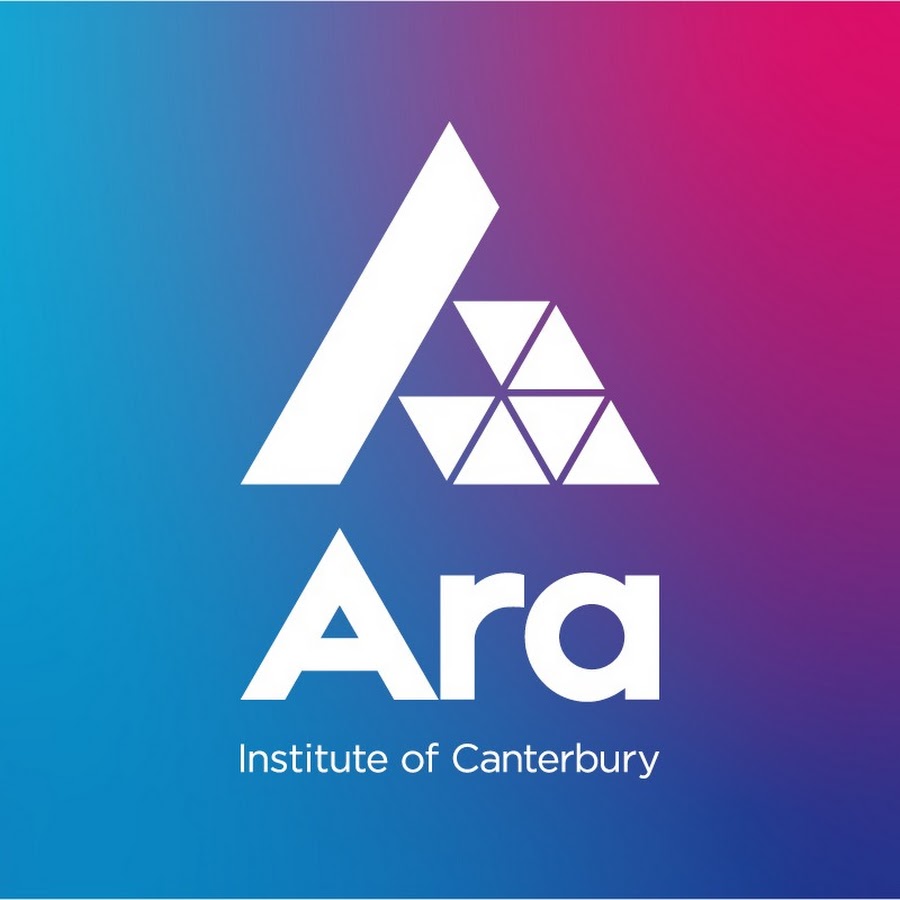Executive Summary
THE OPPORTUNITY
Ara Institute of Canterbury (Ara) is one of Aotearoa New Zealand’s largest Institutes of Technology and Polytechnics (ITPs). With annual revenue exceeding $130 million, more than 7,000 equivalent full-time students, and over 900 staff, Ara is a cornerstone of the Canterbury region’s economy, talent pipeline, and innovation system. Operating major campuses in central Christchurch and Timaru, Ara delivers qualifications from foundation to postgraduate level across a diverse range of industries and disciplines.
Following the government’s decision to disestablish Te Pūkenga and reinstate independent ITPs, Ara will be re-established on 1 January 2026 as a stand-alone statutory entity. The Chief Executive will lead Ara through this critical period of transition, ensuring organisational stability while embedding Ara as a trusted, financially sustainable, and future-ready institution.
THE ROLE
The Chief Executive reports directly to the Ara Institute of Canterbury Council and carries full accountability for the leadership, management, and performance of the organisation. This includes academic quality, financial stewardship, workforce culture, asset management, and strong public accountability. A key focus will be ensuring Ara’s education delivery continues to meet the needs of students, industries, employers, iwi partners, and the wider community.
This role requires a leader who can keep Ara steady and safe through significant system change, consolidate its strong foundations, and build a culture of collaboration and trust. The successful candidate will demonstrate commercial acumen, experience working with iwi and local industry, and a pragmatic, team-oriented leadership style.
THE CANDIDATE
We seek an experienced executive with a track record of leading large, complex organisations in the public, tertiary, or adjacent sectors. The ideal candidate will bring strong financial management expertise, deep stakeholder engagement capability, and proven ability to guide organisations through periods of transition. Equally important are personal qualities: humility, integrity, and the ability to bring people together to deliver results.
This is an opportunity to steward one of Canterbury’s most significant institutions into its next chapter, ensuring Ara remains a trusted, resilient, and future-focused partner for learners, employers, iwi, and the community.
We invite you to discuss this exceptional leadership opportunity with David Price from the HardyGroup
M. +64 (0)21 0239 2211 | E. dprice@hardygroupintl.com

Ara Institute of Canterbury
KEY FACTS AT A GLANCE:
- Re-establishing as an independent Institute of Technology and Polytechnic (ITP) on 1 January 2026
- Annual Revenue: Over $130 million
- Students: More than 7,000 equivalent full-time students (EFTS)
- Staff: Over 900 full-time equivalent staff
- Campuses:
- Two major campuses in central Christchurch
- Additional campus in Timaru
- Scope of Delivery: From foundation, certificate programmes through to postgraduate and master’s degrees, across a wide range of industries and disciplines including:
- Health and Social Practice (e.g., nursing, social work, early childhood education)
- Engineering, Trades, and Construction (e.g., civil, electrical, carpentry, plumbing)
- Creative and Digital Industries (e.g., design, media, information technology, animation)
- Business, Management, and Hospitality
- Science, Environmental Studies, and Applied Technology
- Community Contribution:
- Significant provider of skilled graduates for Canterbury and beyond
- Major regional employer and contributor to the local economy
- Partnerships:
- Close collaboration with local and regional industries
- Strong engagement with Ngāi Tahu and other iwi partners
- Active partnerships with universities, schools, and community organisations
- Future Context:
- Part of the government’s tertiary sector reforms
- Will operate as one of New Zealand’s independent, regionally led ITPs with a clear mandate for responsiveness to community and industry needs
About Ara Institute of Canterbury
Ara is a vibrant, progressive institute providing world-class, tertiary-level education.
Our objective is to empower students to build better worlds. We want every Ara student to be equipped for the challenges and opportunities that lie ahead, and we achieve this by providing relevant courses, taught by inspirational mentors in real-life learning environments.
Our talented staff, innovative industry partners and supportive community play a significant role in contributing to this outcome. Collectively, we're committed to ensuring that every student has the industry-relevant knowledge, skills and experience they need to get the job they want and to excel in it.
Our learning models and course content continually evolve to respond to industry and regional needs. To ensure our students have real-world experience and graduate work-ready, we offer an ever-expanding array of workplace training opportunities, internships, apprenticeships and partnerships with industry. And to meet the demand for flexible study options, we offer an increasing range of online, blended delivery and part-time programmes.
These measures, combined with a low student-to-tutor ratio and comprehensive support services, ensure our students thrive in an inclusive, nurturing, flexible and technology-enhanced study environment where meaningful learning experiences are the norm.
And it means that when they head out into the world, our graduates are equipped with internationally-relevant qualifications, valuable industry connections and skills that will enable them to contribute to a fast-changing world.
Our Purpose and Values
Ō tātou pūtake | Our purpose
At Ara, our purpose is clear and powerful:
Transforming lives and strengthening communities through the power of education.
This purpose is the heartbeat of everything we do. It reminds us that every lesson taught, every connection made and every value we uphold has the potential to uplift people and create a lasting impact in the world around us.
Ō tātou uara | Our values
Our Ara values guide how we work, how we relate to one another, and how we move forward together.
They’re the foundation of our culture and the way we show up for each other every day. Whether we’re facing challenges or celebrating success, our values help us stay grounded, connected and focused on what matters most.
Hono | Connect
- We bring the right people together to leverage skills, talent and knowledge
- We promote shared ownership and goal delivery
- We include people and work cooperatively to achieve shared goals
Hihiri | Inspire
- We role model good practice with others
- We set stretch goals aligned to our purpose and go for it
- We foster and celebrate progress
Aroha | Respect
- We build rapport in open, friendly, inclusive ways
- We listen to understand different perspectives and cultures
- We have honest conversations and balance our own interests with those of others

ABOUT INSTITUTES OF TECHNOLOGY AND POLYTECHNICS
Institutes of Technology and Polytechnics (ITPs) are public tertiary education organisations delivering vocational education and training services to learners across New Zealand. ITPs operate under the Education and Training Act 2020, following the disestablishment of Te Pūkenga, as part of structural reform to reinstate regional leadership, strengthen governance, and return decision-making authority closer to communities and industries.
Each ITP is responsible for delivering a full range of vocational education programmes, including certificate, diploma, and degree-level qualifications, as well as work-based learning, professional training, and industry-specific micro-credentials.
ITPs are large, multi-campus organisations with diverse student cohorts and multi-layered staffing structures, encompassing academic, administrative, support, and executive leadership teams. These institutions manage significant physical assets including buildings, specialist training facilities, and technology infrastructure.
Ara Institute of Canterbury is one of New Zealand’s largest ITPs and operates multiple campuses in Canterbury.
Tertiary Education Commission
The Tertiary Education Commission | Te Amorangi Mātauranga Matua is a Crown agency that leads the government’s relationship with the tertiary education sector, invests government funding in tertiary education organisations and provides career services from education to employment.
The Tertiary Education Commission invests over $3 billion into tertiary education and supporting the tertiary and careers system. We ensure New Zealanders are equipped with the knowledge and skills they need for lifelong success. We fund over 700 tertiary education organisations (TEOs) to provide thousands of courses to hundreds of thousands of learners. We also monitor the performance of TEOs and provide information and advice to the Government about tertiary education.
For more information go to www.tec.govt.nz

Role Specification
The Chief Executive is accountable for the full leadership and management of the Ara Institute of Canterbury (Ara), ensuring all operational, financial, academic, and public accountability functions are delivered effectively and sustainably from 1 January 2026.
Initially the Chief Executive is responsible, for re-establishing Ara as an independent entity by ensure that it meets all statutory requirements and community expectations. This includes ensuring the continued smooth transfer of staff, students, assets, systems, and governance processes while safeguarding education delivery and student wellbeing.
The role requires large-scale organisational leadership: setting strategic direction, overseeing academic governance, managing financial resources, leading multi-layered leadership teams, and building robust stakeholder relationships across industry, government, iwi/Māori partners, and the community. Working collaboratively with other ITPs
The Chief Executive must ensure that Ara operates as a financially sustainable, academically credible, and socially responsive public institution. This includes managing risk, maintaining compliance with all legislative frameworks, and leading organisational culture and people development across a broad and diverse workforce.
The Chief Executive is fully accountable to the Ara Institute of Canterbury Council for all aspects of organisational leadership, performance, and compliance, including delivery against strategic objectives, achievement of key performance indicators, financial sustainability, and academic quality.
This accountability covers statutory obligations, employment relations, asset and infrastructure management, risk management, and equity outcomes. The Chief Executive is responsible to the Council for maintaining robust organisational culture, upholding Te Tiriti o Waitangi obligations, ensuring good employer practices, and providing free, frank, and timely advice that enables effective governance decision-making.
The Chief Executive carries full responsibility for establishing and leading Ara as an independent statutory organisation. The Chief Executive must ensure robust academic governance processes are in place, maintaining programme quality and compliance with NZQA requirements across all delivery sites. This includes managing curriculum development, teaching and learning innovation, assessment, and moderation systems.
Alongside academic responsibilities, the Chief Executive is accountable for financial leadership at a level consistent with large public institutions. This involves overseeing public funding from TEC, managing commercial revenue streams, and maintaining capital asset portfolios, including facilities and infrastructure.
The Chief Executive must lead organisational design, workforce planning, employment relations, and staff wellbeing frameworks, ensuring alignment with the Employment Relations Act 2000 and Crown entity expectations for good employer conduct.
Public accountability is a core focus. The Chief Executive is responsible for transparent reporting to the Ara Council, TEC, Ministers, and other oversight agencies. This includes regular performance reporting on financial health, student outcomes, equity measures, and stakeholder satisfaction.
Community and stakeholder engagement forms a critical part of the role. The role involves direct engagement Industry representatives, regional industries, employers, and community organisations to ensure education delivery meets current and emerging workforce needs.
The Chief Executive is fully accountable to the Council for the overall performance of the organisation, delivering against strategic priorities, operational requirements, and key performance indicators as formally set and reviewed by the Board. This includes ensuring that organisational objectives are met within approved financial parameters and that all statutory obligations are consistently upheld.
PERSON SPECIFICATION
Professional Qualifications and Experience:
This role requires an executive with extensive experience leading large public sector or tertiary education organisations, preferably at Chief Executive or equivalent level.
Candidates must demonstrate a thorough understanding of tertiary education delivery, academic governance, and public sector financial management frameworks in the New Zealand context. Experience managing multi-campus, multi-site operations with complex staffing structures are essential.
Candidates must also show experience in leading structural or organisational transitions, including managing asset transfers, workforce integration, and system establishment within a Crown entity or equivalent context.
Understanding and experience with New Zealand’s public accountability frameworks, including the Education and Training Act 2020, Crown Entities Act 2004, and Employment Relations Act 2000, is required.
Leadership Capabilities:
The Chief Executive must demonstrate capacity to:
- Lead large-scale organisational strategy while ensuring operational detail and performance are maintained.
- Provide clear advice and support to the Ara Institute of Canterbury Council;
- Manage substantial financial resources, including public funding, revenue generation, and capital asset portfolios;
- Lead complex people structures, managing multiple leadership layers and workforce planning needs;
- Oversee academic programme delivery and compliance at scale;
- Engage effectively with diverse stakeholders, including Māori and iwi partners, regional industries, central government agencies, and community organisations.
Attributes and Approach:
The Chief Executive must operate with a high level of integrity, public sector discipline, and strategic foresight. A structured, outcome-focused, and evidence-based leadership approach is essential.
This role requires a leader who is equally comfortable with high-level governance engagement and day-to-day organisational management, ensuring that both strategic direction and operational performance meet the highest standards of public service, academic quality, and financial sustainability.
- 1.Proven Executive Leadership
Extensive experience leading large, complex organisations, ideally in tertiary education, public sector, or similar environments, with full accountability for financial, people, and operational outcomes. - 2.Financial and Commercial Acumen
Demonstrated strength in financial stewardship of large budgets, including managing public funding, generating commercial revenue, and ensuring long-term institutional sustainability. - 3.Stakeholder and Community Engagement
Ability to build strong, respectful, and enduring relationships with iwi, regional industries, government agencies, and community partners to ensure Ara’s programmes and outcomes align with local and national workforce needs. - 4.Change and Transition Leadership
Experience successfully leading organisations through complex transitions, restructures, or system reforms while maintaining service delivery, cultural stability, and staff/student wellbeing. - 5.Personal Attributes and Leadership Style
A humble, collaborative, and action-oriented leader who builds trust, unites diverse teams, delivers on commitments, and acts as a steward for Ara’s role in the region. Operates with integrity, resilience, and a focus on public accountability.
Reports to: Chair, Ara Institute of Canterbury Council
Delegations: Executive delegations granted by the Ara Institute of Canterbury Council, including full operational, financial, academic, and strategic authority as governed by the Education and Training Act 2020, the Crown Entities Act 2004, and the Employment Relations Act 2000.
Attractive remuneration package, please discuss with HardyGroup Consultant
Service Location: Christchurch, New Zealand
The closing date for applications is Monday 27th October, 2025
The reference number to include in your application is H25_5285
Note: Please use the online platform to submit your application. It will not be accepted via email.
If you require assistance in submitting your application online, please get in touch with Executive Search Coordinator, Aldie Zuñiga: M: +61 (0)49 410 1082 / E: azuniga@hardygroupintl.com
Your application must include:
- 1.Cover letter addressed to the Principal Consultant, David Price;
- 2.A written response addressing the key selection criteria; and
- 3.An up to date copy of your Curriculum Vitae.
It Is standard practice for HardyGroup to acknowledge receipt of your application no later than the next business day. We request that if you do not receive the acknowledgement, you contact the search coordinator listed above as soon as possible after the 24-hour business period and arrange to resend your application if necessary.
For a confidential discussion, please contact:

David Price
National Manager, HardyGroup New Zealand
M. +64 (0)21 0239 2211
E. dprice@hardygroupintl.com
Living and working
in Canterbury
Canterbury
The Canterbury region is a great place to live and work due to its natural beauty, vibrant economy, cultural diversity, strong community, and high quality of life.
The Canterbury region is located on the east coast of New Zealand's South Island. Ōtautahi Christchurch, is the second largest city in Aotearoa New Zealand and the largest city in the South Island.
Waitaha Canterbury is the home of the spectacular Southern Alps mountain range, is well-known for its outdoor adventure activities on offer, and scenic filming locations for the Lord of the Rings movies.
Christchurch
Christchurch city is an eclectic mix of historic elegance and contemporary culture.
Christchurch International Airport is a bustling hub for travellers and a truly makes Christchurch the gateway to the South Island, with direct flight destinations that include - Dubai, Singapore, Fiji, Brisbane, Gold Coast, Sydney, Melbourne, Hong Kong and San Fransico.


Culture and Leisure
As the largest and de facto capital city of the South Island, Christchurch is a major cultural center. Christchurch has a distinctly English feel, as demonstrated by its many examples of classic English architecture, but there is still a significant Maori influence on the cultural life of the city. In addition to its green areas, parks, and open spaces, expatriates living in Christchurch will be able to enjoy its many art galleries and museums, including the world famous Christchurch Art Gallery, and its thriving restaurant scene.
As it is the location of a number of university campuses, Christchurch also has a large student population, which contributes to its bustling atmosphere and cultural scene. The city is also known for its love of film, due to its many art-house and independent cinemas. Christchurch is also a key part of the New Zealand music scene, and is home to many bands, artists, and performers.
Christchurch Population and Demographics
Christchurch is the third largest city in New Zealand by population, and had around 388,000 residents as of mid-2018, according to the city council. While the Christchurch population dipped after the 2011 earthquake, it is on the rise again.
The city is becoming more and more ethnically diverse, although around 85% of the population still identified as “European or other” in the 2013 census. That census also showed the median age of Christchurch residents to be 38.
Christchurch Weather and Climate
Christchurch’s climate is classified as temperate oceanic, with mild summers and cool winters. The city can, however, experience sweltering days in January and February – as well as snowfall in the colder months. Average temperatures in Christchurch are around 20-25 degrees Celsius in the summer and ten degrees Celsius in the winter.
The city gets regular precipitation throughout the year. Annual average rainfall in Christchurch is 648 millilitres, which is lower than that of New Zealand’s other major cities—good news if you’re thinking of migrating to Christchurch and like staying dry!
For more information on Living in Ōtautahi | Christchurch visit.

ABOUT US
HardyGroup’s (HG) mission is simple
Find and Grow Great Leaders - and we have been doing exactly that for more than 30 years in public and private health, primary, community and aged care as well as the broader public service.
Our synergistic business model of Executive Search and Recruitment integrated with Executive Leadership and Learning is our unique point of difference.
It ensures our clients can count on us for the lifecycle of their organisations leadership journey and why we are regarded as the leading trans-Tasman partner agency by clients.
When engaging HG you can be confident in a deeply personalised experience and service as nothing matters more to us than relationships and results.


